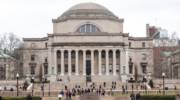Helen Keller said “There is no better way to thank God for your sight than by giving a helping hand to someone in the dark.” One out of 4,000 Americans suffer from Retinitis Pigmentosa, an inheritable eye disease that causes severe vision problems and often blindness. The Technion, a prominent Israeli university, is developing ways to help people suffering from this disease see again, . . According to Prof. Shy Shoham, who headed the Technion’s research team on this subject matter, “Degenerative diseases of the outer retina are one of the major causes of blindness in the Western world. These diseases are characterized by degeneration of the photoreceptors, which serve as light sensors, while downstream cellular levels in the retina, and specifically the retinal ganglion cells, are relatively well preserved.” This fact, he believes, holds the key to helping people who became blind from these diseases to see again (this being said an actual treatment is not yet in the forseeable future).
In an article published in Nature Communications, the Technion researchers including Dr. Inna Reutsky-Gefen, claimed that they have developed a special light projector for artificially activating cells in blinded retinas using a light-sensitive protein that can be injected into the eyes. This is all based on a new science called Optogenetics, a new field which utilizes gene therapy to deliver light-sensitive proteins to damaged cells in the retina. According to Shoham, “The basic idea of optogenetics is to take a light-sensitive protein from another organism, typically from algae or bacteria, and insert it into a target cell, and that photosensitizes the cell.” This procedure combined with new type of bionic ‘seeing aid’ for the eyes, similar to a hearing aid for the ears, can help restore sight to the visually impaired.
While the Israeli researchers state that there is still much work to be done before this technique can be put out on the market and used by the general population, it definitely is the first step towards helping people who have become blind from certain diseases to see again. They claimed, “We provide the first demonstration of holographic photo-stimulation strategies for bionic vision restoration.” Thus, the research being conducted at the Technion has great potential to help many blind people around the globe restore their vision.
By Rachel Avraham
For more information visit: http://niel.bm.technion.ac.il/
Do You Love Israel? Make a Donation - Show Your Support!
Donate to vital charities that help protect Israeli citizens and inspire millions around the world to support Israel too!
Now more than ever, Israel needs your help to fight and win the war -- including on the battlefield of public opinion.
Antisemitism, anti-Israel bias and boycotts are out of control. Israel's enemies are inciting terror and violence against innocent Israelis and Jews around the world. Help us fight back!






















